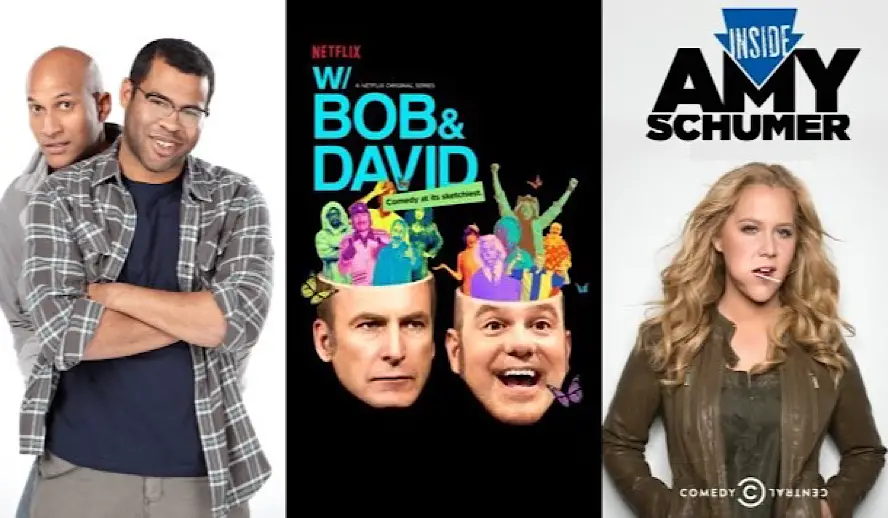Sketch comedy writing – it’s like the sprinting event of the comedy world. Quick, punchy, and to the point, it packs a laugh in a matter of minutes, if not seconds. This article peels back the curtain on the art of short-form comedy, guiding you through the labyrinth of creating sketches that hit the funny bone just right. Whether you’re a budding writer with a penchant for comedy or a seasoned scribe looking to refine your craft, we’ve got the lowdown on everything from structuring your sketches to finding your unique comedic voice. It’s time to dive into the whimsical world of sketch comedy writing.
Table of Contents
The Basics of Sketch Comedy Writing
- Understanding the Format
- The Importance of Brevity
Finding Your Inspiration
- Observing the World Around You
- Mining Personal Experiences
Crafting Your Sketch
- The Setup: Establishing the Premise
- The Build: Escalating the Comedy
- The Punchline: Delivering the Payoff
Character Development in Sketches
- Creating Memorable Characters
- Using Archetypes and Stereotypes
Polishing Your Script
- Rewriting for Clarity and Punch
- Timing and Pacing
Tips for Successful Sketch Writing
- Keeping the Audience Engaged
- Finding Your Comedic Voice
Conclusion
FAQs
The Basics of Sketch Comedy Writing
Sketch comedy writing is an art form where brevity and wit reign supreme. Unlike traditional storytelling, sketches are all about delivering a quick comedic payoff. Let’s break it down:
- Understanding the Format: A sketch is a short, standalone piece of comedy, typically lasting anywhere from one to ten minutes. Think of it as a comedic snapshot, capturing a singular idea or concept.
- The Importance of Brevity: In sketch comedy, every word counts. The goal is to get to the laugh as efficiently as possible, trimming any fat that doesn’t serve the humor.
Finding Your Inspiration
Inspiration for sketches can come from anywhere and everywhere. Here are a couple of ways to ignite that comedic spark:
- Observing the World Around You: Life’s little absurdities often make the best material. Keep an eye out for those quirky, oddball moments that make you chuckle.
- Mining Personal Experiences: Your own experiences are a goldmine for comedy. Think back to those embarrassingly hilarious situations you’ve found yourself in.
Crafting Your Sketch
Creating a sketch involves three main stages:
- The Setup: Establish the premise of your sketch. This is where you introduce the characters and the situation they’re in.
- The Build: Escalate the comedy through conflict, absurdity, or misunderstanding. This is where the tension—and the humor—builds.
- The Punchline: Deliver the payoff. This is the climax of your sketch, where the laughter should hit its peak.
Character Development in Sketches
Characters are the heart of any sketch. Here’s how to make them stand out:
- Creating Memorable Characters: Give your characters distinctive traits, quirks, or catchphrases that make them unforgettable.
- Using Archetypes and Stereotypes: Play with familiar types but add a twist to keep them fresh and surprising.
Polishing Your Script
The first draft is just the beginning. Refinement is key:
- Rewriting for Clarity and Punch: Trim the fat and sharpen the jokes. The tighter your script, the bigger the laughs.
- Timing and Pacing: Comedy is all about timing. Ensure your sketch has a rhythm that builds to the punchline effectively.
Tips for Successful Sketch Writing
Here are a few parting nuggets of wisdom:
- Keeping the Audience Engaged: Always think about the viewer’s perspective. Is the humor relatable? Is the payoff worth the build-up?
- Finding Your Comedic Voice: Don’t be afraid to experiment. Your unique perspective and style of humor are what will make your sketches shine.
Conclusion
Sketch comedy writing is a thrilling ride, full of twists, turns, and belly laughs. By mastering the art of short-form comedy, you can create sketches that not only entertain but also resonate with audiences long after the curtain falls. Remember, the world of comedy is vast and varied—there’s room for every voice, every style, and every laugh. So keep writing, keep refining, and most importantly, keep laughing. Who knows? The next sketch you pen could be the one that catapults you to comedy stardom.
FAQs
What’s the best way to get started with sketch comedy writing?
- Start by writing! Don’t worry about perfection on your first go. The more you write, the more you’ll find your comedic voice.
How important is it to have other people read my sketches?
- Invaluable. Feedback can help you see what’s working and what’s not, especially from a comedic standpoint.
Can I make a career out of sketch comedy writing?
- Absolutely! Many writers have launched successful careers through sketch comedy, contributing to shows, theaters, and online platforms.
How do I know if my sketch is “funny enough”?
- Comedy is subjective, but a good rule of thumb is if it makes you and others laugh, it’s funny enough. Testing your material on an audience is key.
Are there any resources for aspiring sketch comedy writers?
- Yes, there are numerous workshops, courses, books, and online communities dedicated to comedy writing. Immersing yourself in these resources can be incredibly beneficial.

